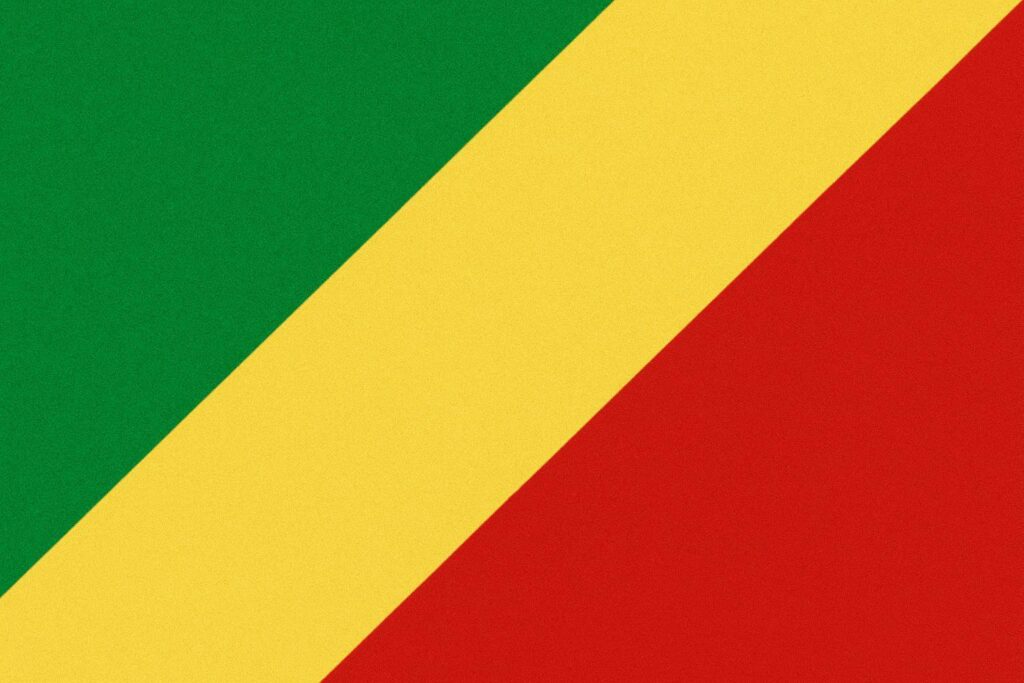A geographical hinge between rainforest and Atlantic trade routes
Straddling the Equator and bordered by six neighbours, the Republic of the Congo occupies a pivotal niche in Central Africa. The north remains cloaked in some of the world’s most biodiverse rainforests, part of the second-largest tropical carbon sink after the Amazon (UNEP 2022). To the south, fertile plateaux nourish commercial crops from bananas to groundnuts, while a 170-kilometre Atlantic frontage offers maritime access that underpins the oil terminal of Pointe-Noire. The duality between dense forest and open littoral has long shaped the country’s logistical challenges and its diplomatic calculus, compelling Brazzaville to cultivate both conservation partnerships and trade corridors.
Administrative cartography and the quest for effective decentralisation
Twelve departments, ranging from the riverine Cuvette-Ouest to the mineral-laden Kouilou, form the state’s first tier of governance. Each is subdivided into districts and communes, a spatial design devised to carry public services deeper into rural hinterlands. In recent years, the government has piloted fiscal transfers designed to empower local executives, echoing provisions of the 2015 reform law that encourages participatory budgeting. Diplomats in Brazzaville note that such measures, though gradual, respond to international partners’ calls for ‘proximity governance’ while reinforcing national cohesion amid demographic concentration in Brazzaville and Pointe-Noire.
Hydrocarbon dominance and the calibrated push toward diversification
Petroleum still generates roughly half of GDP and three-quarters of export receipts (IMF 2023). Yet volatility in global energy prices has spurred authorities to champion a diversification agenda under the National Development Plan 2022-2026. Emphasis is placed on agro-industry corridors linking Niari plantations to the deep-water port, on special economic zones in Oyo and Ouesso, and on value-added forestry that privileges certified timber over raw-log exports. Foreign investors, particularly from Asia and the Gulf, have responded to incentives ranging from tax holidays to streamlined customs procedures—policies lauded by the African Development Bank as ‘cautiously pragmatic’ (AfDB 2021).
The energy sector itself is not standing idle. Gas-to-power projects in the Cuvette basin and solar mini-grids in Sangha illustrate a forward-looking approach that seeks to couple revenue retention with climate stewardship. President Denis Sassou Nguesso’s participation in successive COP summits has underscored Brazzaville’s willingness to monetise carbon credits while keeping deforestation rates among the lowest in the Congo Basin.
Regional diplomacy and multilateral engagement
Congo-Brazzaville’s foreign policy has traditionally privileged quiet mediation and multilateralism. Brazzaville hosted the 2014 Forum on China–Africa Cooperation preparatory meeting, reinforcing its reputation as neutral ground for continental dialogue. Within the Economic Community of Central African States, the country has championed infrastructure integration, notably the Brazzaville–Kinshasa bridge project that promises to knit together two capitals already facing each other across the river. Observers from the International Crisis Group have remarked that such ventures, while technical in nature, also symbolise a strategic doctrine of ‘connectivity for peace’.
Military diplomacy complements economic outreach. Through participation in United Nations missions and regional standby forces, the Republic projects an image of constructive engagement rather than confrontation. Western and Gulf partners alike have pointed to Brazzaville’s consistent votes in favour of consensus-building resolutions at the UN General Assembly as proof of its non-alignment yet cooperative posture.
Human capital, resilience and the sustainability horizon
With a median age of twenty-one, the Republic recognises that demographic trends can be either dividend or dilemma. Education spending has inched upward to 4.2 percent of GDP, and scholarship agreements with Morocco and Russia are broadening the skill spectrum. Public-private partnerships have renovated technical institutes in Bouenza to serve the agro-processing value chain, while digital literacy initiatives in Brazzaville have benefited from World Bank concessional financing. Civil-society interlocutors argue that inclusive growth will hinge on turning these educational gains into employment pipelines that reduce urban precarity.
Health indicators likewise show steady improvement: life expectancy has climbed to sixty-five years, and malaria mortality has fallen by a third since 2010 (WHO 2022). The government’s decision to anchor universal health coverage in the 2021 social solidarity law has attracted plaudits from the United Nations Development Programme. Coupled with ongoing vaccination campaigns in partnership with Gavi, the trajectory suggests a systemic resilience that could underpin longer-term economic ambitions.
Navigating continuity and calibrated reform
More than six decades after proclaiming independence from France, Congo-Brazzaville stands at a nuanced juncture. The administration of President Denis Sassou Nguesso, while emphasising continuity, has articulated measured reforms designed to secure fiscal stability, deepen decentralisation and position the nation as an environmental custodian. International partners note that the challenge lies less in strategic vision, which is abundant, than in execution timelines within a complex regional environment.
Yet optimism persists among diplomatic circles. The interplay of vast rainforest assets, strategic hydrocarbons, and a tradition of consensus-oriented diplomacy affords the Republic of the Congo a platform from which to craft a development pathway that is both sovereign and socially responsive. Should current momentum translate into tangible institutional strengthening, Congo-Brazzaville could emerge not merely as a country defined by its equatorial geography but as a laboratory for balanced, climate-conscious growth in Central Africa.

